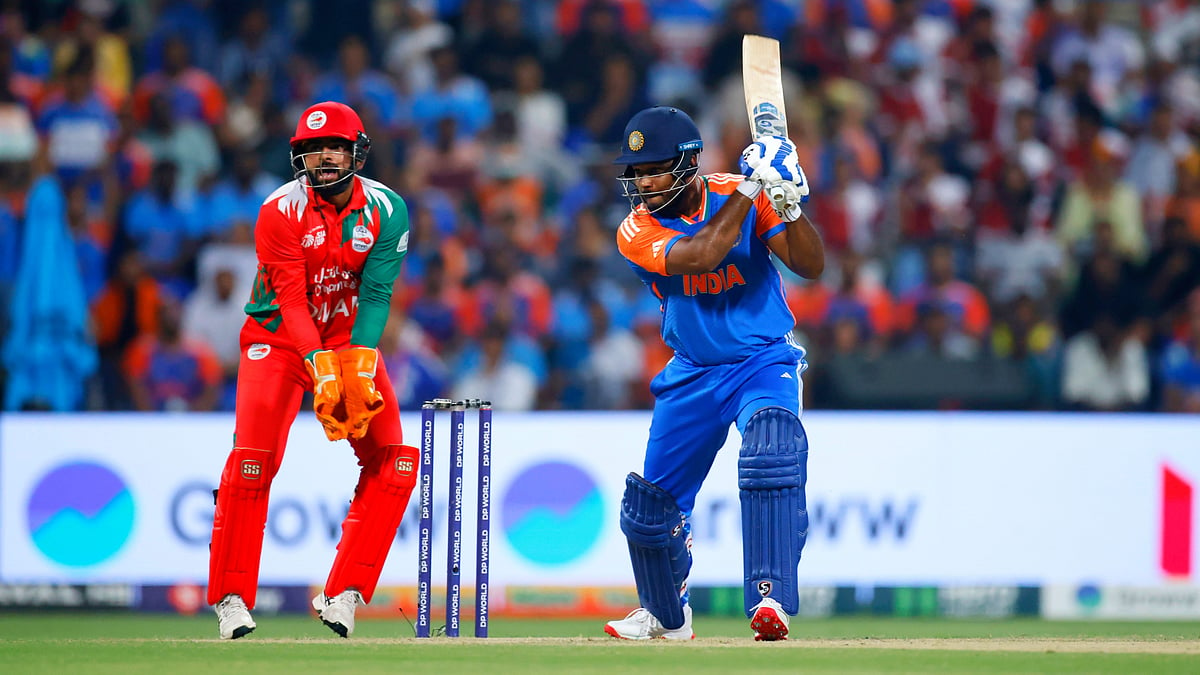2025 Asia Cup: Sport's Paradox on Show as India Win, But Oman Shine Brighter
2025 Asia Cup: In what began as an academic contest, the outcome will end up being academic to intrepid Oman.

advertisement
It borders on an embarrassment of riches — or perhaps a gaudy display of elitist supremacy — when a team has its captain, a specialist batter many regard as the finest in the format, walking out at number 11. Yes, you read that right. Eleven.
The 'OG' Opening Pair Deliver, But Contrastingly
The first wise call came at the toss. Choosing to bat first in Abu Dhabi made sense, for this was never going to be a surface that yielded outlandish records — even in a lopsided contest like India versus Oman. Still, to dismiss Shubman Gill’s struggles as mere circumstance would be disingenuous.
Hardik Pandya cannot be faulted for his runout at the non-striker’s end, but his misfortune can. Barring the pair, Shivam Dube is the only batter who could not get a move on, mirroring Gill’s score.
Axar Patel and Tilak Varma had cameos, but the two batters who shone the brightest happened to be the pair who were opening the innings for India in this format, prior to Gill’s promotion — Abhishek Sharma and Sanju Samson.
The knocks were, however, contrasting. Sharma, the number one ranked batter in men’s T20I cricket, was explosive, as he always is, in his 15-ball 38. There was conjecture aplenty regarding Sanju Samson’s batting position, but sent at number three in this match — a position he will be asked to swiftly vacate before the next match — he scored a 45-ball 56.
Only 4 Wickets Not Good For Optics
India’s bowling resources were without two prized jewels in Jasprit Bumrah and Varun Chakaravarthy. Accordingly, they may not have expected a repeat of the demolition job against the UAE, when they rolled their opponents for 57. Even so, conceding 167 runs against Oman did little good to optics. That too, with only four wickets to show for.
Albeit, much like with their batting, Gautam Gambhir’s team went out of their way to provide an opportunity to nearly every player in blue with the ball, with captain Suryakumar Yadav, Shubman Gill, and Sanju Samson being the only Indian cricketers who did not roll their arms over. Notably, two of those three players have never bowled in T20I cricket, so that record remains intact.
Oman Highlights Sport's Unique Paradox
Such is the paradox of sport that the winner is not always the happier side. Oman might afford to sport a bigger, brighter smile than their opponents, for pushing much above their weights.
Jatinder Singh’s men entered the tournament with a depleted squad, the fallout of a very public rift between the board and several of the country’s most celebrated players — including Bilal Khan — over the distribution of ICC Men’s T20 World Cup prize money.
Oman's captain Jatinder Singh, who scored a cautious 32 to set things in motion, credited his players for their valiant effort.
Oman Earn Praise From Suryakumar Yadav
Not that he had many competitors for the honour, but Sanju Samson was rightfully adjudged to be the player of the match. As it turned out, India might have been in a spot of bother, had it not been for his half-century.
Oman's effort also earned praise from the Indian captain, who had also expected them to be stubborn owing to nature of their deputy head coach, Sulakshan Kulkarni, who, like Yadav, also hails from Mumbai.
India's Super Four campaign will commence with a match against Pakistan on 21 September.